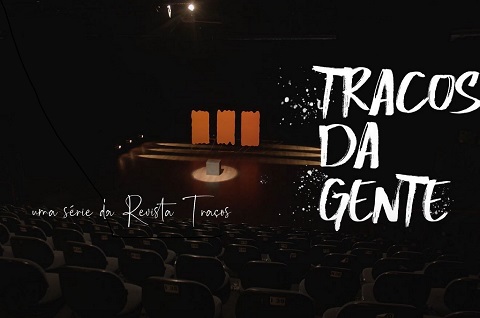By Yakuwa Kayoko, The Big Issue Japan
A familiar red polo shirt is visible in front of Bipuresu Kumanichi Kaikan in Kumamoto City. When I say “Hello!”, the 61-year-old Nakanishi Hitoshi greets me with a bright smile and a “Oh, hello to you too!”
Nakanishi has been selling The Big Issue Japan for six and a half years. At the beginning, because there were few vendors on Kyushu, Nakanishi’s customers came from various prefectures, and he sold up to 400 copies a month. “That fell to around 300 copies after the Kumamoto earthquake in 2016,” he says. “With the recent coronavirus crisis, it’s fallen to an even lower number.”
He tells me that the customers who support him in Kumamoto have commented on the fact that he never seems to get depressed. “Not at all; I too get depressed,” Nakanishi clarifies. “But my predecessor was at this pitch for two and a half years, and I’ve been selling here for six and a half years. Customers have been supporting us for nearly nine years, so it’s easy not to quit.”
![Big Issue Japan vendor Nakanishi Hitoshi. [Credit: Yakuwa Kayoko]](https://hub.insp.ngo/wp-content/uploads/2021/10/BIJ_Vendor-Nakanishi-Hitoshi_1.jpg)
Nakanishi has overcome many hardships. He was born in Ehime Prefecture. His father, a sailor who worked on international shipping routes, reared him and his siblings. He found employment at a shipping company and was recognized for his honest work. He married, had two children, and lived a problem-free life.
However, a sharp increase in fuel prices made the company falter. Nakanishi was forced out and lost his job due to scandals among his subordinates. His family left, his house was put up for auction, and all he had left was the monthly mortgage payment of 170,000 yen.
“They always say self-accountability [is key],” he says. “‘If you don’t work, you get what you deserve.’ But even if you keep your nose to the grindstone, you can lose your job for a variety of reasons and end up homeless.”
Nakanishi, when he was penniless, thought only that he must stay on the right side of the law. He desperately looked for a way to get through. He drifted from Shimonoseki to Kyushu and somehow survived in Kumamoto which, he recalls “seemed to have a lot of temples” by going around to different temples.
![Visible behind him is the long-standing Tsuruya Department Store. [Credit: Yakuwa Kayoko]](https://hub.insp.ngo/wp-content/uploads/2021/10/BIJ_Vendor-Nakanishi-Hitoshi_4.jpg)
“I’d say, ‘I’ll pick up trash or weeds, or do anything’,” Nakanishi recalls. “I’d go three days without getting anything if I wasn’t lucky, but if I was, at some places I’d get paid and be treated to food.”
However, after three months, he realized that he needed to take a different course of action. He asked for advice at city hall and was introduced to The Big Issue, which brings us back to the present. “I have no relatives in Kumamoto, so I really look forward to talking with customers,” Nakanishi says. “There is nothing worse than not having someone to talk to.”
Nakanishi was diagnosed with Asperger’s syndrome a few years ago. “At my age, it’d be hard to get work again at a regular company, and I have disabilities,” he continues. “This is a job that I enjoy, and I’d like to keep doing it.”
He has had numerous opportunities to speak about his experiences to colleges and the public. “Temp work is on the rise now, and with the coronavirus outbreak, it’s not uncommon to find yourself in need,” he says. “Through [sharing] my experiences, I want others to understand that reality.”
Translated from Japanese by Kevin Sword




















